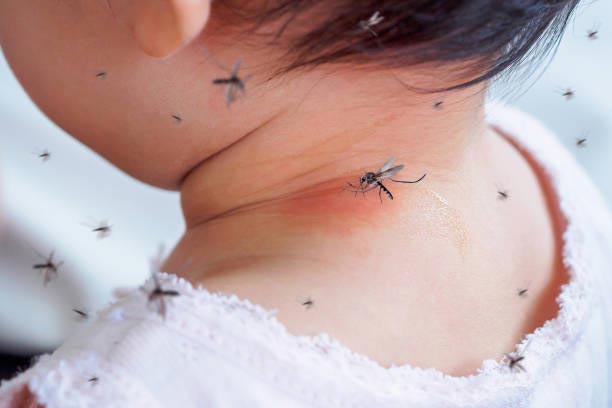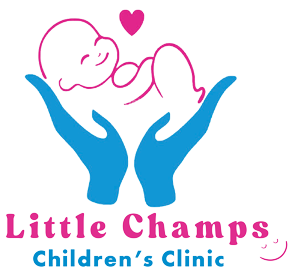What is dengue?
Dengue is a mosquito-borne viral infection that affects millions of people globally, particularly in tropical and subtropical regions. Infants are particularly vulnerable to dengue due to their developing immune systems, and the illness can progress quickly if left untreated. Knowing the signs of dengue, understanding its risks, and taking preventive measures are essential to protecting infants from this serious condition.

Dengue is caused by the dengue virus, which is transmitted through the bite of an infected Aedes mosquito, specifically the Aedes aegypti and Aedes albopictus species. The infection can range from mild flu-like symptoms to severe forms, such as dengue hemorrhagic fever (DHF) and dengue shock syndrome (DSS), which can be life-threatening.
Infants are at higher risk of developing severe dengue, as their immune systems are not fully developed, and they may not have had prior exposure to the virus, which can increase the severity of symptoms.
How does dengue affect infants?
Dengue is particularly concerning in infants because their immune systems are still maturing. When infected, infants are less capable of combating the virus, and the symptoms tend to be more severe. Recognizing the signs early and seeking professional medical care is crucial.
What are the symptoms of dengue fever in infants?
Dengue symptoms in infants can sometimes be challenging to recognize, as they may overlap with common illnesses. However, key signs to watch for include:
- High fever: a sudden, high fever (often above 102°f or 39°c) is one of the earliest signs of dengue in infants and may persist for several days.
- Rash: many infants develop a red or pink rash on the skin, which may appear on the face, chest, and limbs. This rash can appear in the first few days or later in the illness.
- Irritability and fussiness: infants may be unusually irritable, fussy, or restless, often crying more than usual.
- Loss of appetite: babies with dengue often show decreased interest in feeding or drinking.
- Vomiting and diarrhea: gastrointestinal symptoms, such as vomiting or diarrhea, are common in infants with dengue.
- Fatigue and weakness: babies may appear weak, lethargic, and show less interest in usual activities.
- Swollen hands or feet: some infants with dengue experience swelling in their hands and feet.
- Nasal or gum bleeding: in more severe cases, signs of bleeding, such as nosebleeds, bleeding gums, or tiny red spots on the skin, may appear, indicating a progression to severe dengue.
If an infant exhibits these symptoms, especially after being in a dengue-prone area, parents should seek immediate medical attention to confirm the diagnosis and receive proper treatment.
Causes and risk factors
Dengue is caused by any of the four strains of the dengue virus (DENV-1, DENV-2, DENV-3, DENV-4). Once a person is infected with one strain, they develop immunity to it, but they remain susceptible to the other three strains. In infants, the risk of severe dengue can increase due to factors such as:
- Exposure to Aedes mosquitoes: infants living in areas with high mosquito populations, especially during rainy seasons, have an increased risk.
- Maternal antibodies: babies born to mothers previously infected with dengue may have maternal antibodies, which can sometimes increase their risk of severe dengue if they become infected.
- Climate and environment: living in humid, densely populated areas with poor sanitation creates a higher risk of mosquito exposure.
Diagnosis of dengue fever in infants
If dengue is suspected, a pediatrician will conduct a physical examination and recommend laboratory tests. Common diagnostic tests include:
- Blood tests: a complete blood count (CBC) can help monitor platelet levels, red blood cells, and white blood cells, which may be impacted by dengue.
- NS1 antigen test: this test detects the dengue virus early in the illness.
- IgM and IgG antibody tests: these tests detect antibodies the body produces in response to the virus and can confirm recent or past infections.
What are the best treatment options for dengue fever in children?
There is no specific antiviral treatment for dengue. Management focuses on supportive care to relieve symptoms and prevent complications:
- Hydration: proper hydration is critical in treating dengue, especially for infants. Give oral rehydration solutions or electrolyte-rich fluids if recommended by a doctor. In severe cases, intravenous (IV) fluids may be necessary.
- Fever management: use fever reducers like acetaminophen (paracetamol) to reduce high fevers, as recommended by a pediatrician. Avoid non-steroidal anti-inflammatory drugs (NSAIDs) like ibuprofen and aspirin, as they may increase bleeding risk.
- Rest and comfort: keeping the infant comfortable and encouraging rest can help their body recover.
- Monitoring: frequent monitoring of the infant’s temperature, fluid intake, and signs of any bleeding is crucial. A healthcare provider may request regular blood tests to monitor platelet levels.
- Important note: in severe dengue cases, infants may require hospitalization for intensive monitoring and management. Early intervention can prevent complications such as dengue hemorrhagic fever (DHF) or dengue shock syndrome (DSS), both of which can be life-threatening.
Preventing dengue fever
Given the serious health risks associated with dengue, prevention is key. Here are some preventive measures parents can take to protect their children
- Use mosquito nets: protect the sleeping area with nets to prevent mosquito bites
- Dress appropriately: cover infants with long sleeves and pants to minimize exposed skin
- Use safe mosquito repellents: choose repellents that are safe for babies and apply them regularly
- Eliminate mosquito breeding sites: ensure no standing water is around your home where mosquitoes can breed
- Keep surroundings clean: ensure your environment is clean and free of any potential mosquito habitats, like uncovered water containers or clogged drains
When to seek emergency pediatric medical care
Dengue in infants can become severe quickly, so it’s essential to seek immediate medical care if you observe any of the following symptoms:
- Severe abdominal pain or persistent vomiting
- Cold or clammy skin, indicating possible shock
- Rapid breathing or difficulty breathing
- Signs of bleeding, such as nosebleeds, gum bleeding, or blood in vomit
- Lethargy, extreme drowsiness, or inability to wake up.
- Early medical intervention can prevent serious complications and ensure the infant receives prompt, appropriate care.
Conclusion
Dengue in infants can be serious, but with awareness, timely medical intervention, and preventive measures, parents can reduce the risk and protect their babies from the illness. Recognizing early symptoms and knowing when to seek medical care can be lifesaving. Reducing mosquito exposure, especially in areas with high dengue prevalence, is essential in safeguarding infants’ health. If you suspect dengue or have questions about preventing it, consult your pediatrician for guidance and support.
Articles
- The Impact of Nutrition on Children's Growth and Development
- The Benefits of Spending Time Outdoors for Children's Health
- The Ultimate Guide to Infant Feeding
- Establishing Healthy Sleep Habits for Your Baby
- Newborn Baby Rash Treatment In Vijayawada
- What is baby colic?
- Dengue Fever in Infants
- What do you need to know about chickenpox or varicella?
- What is common cold in children?
- What is whooping cough or pertussis in children?
- What is anemia in kids?
- What is influenza or flu n children?
